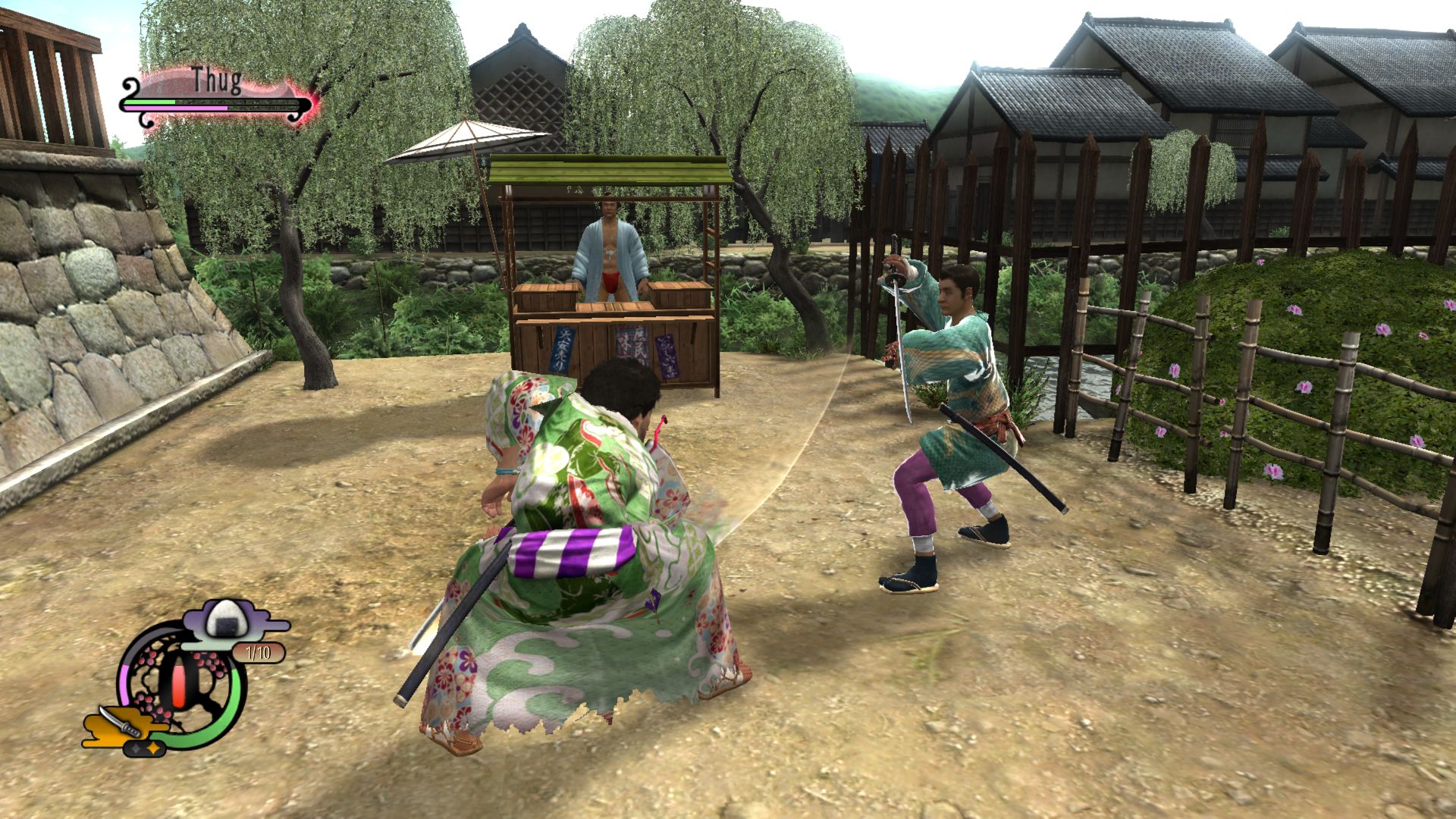Our Verdict
An open-world samurai adventure with an interesting structure and a lot of personality that is, unfortunately, not very good.
PC Gamer's got your back
What is it? Wandering samurai adventure set in feudal Japan.
Expect to pay £20 / $25
Developer Acquire
Publisher Ghostlight
Reviewed on GeForce GTX 970, Intel i5-3570K @ 3.4GHz, 16GB RAM
Multiplayer None
Link official site
After 200 years of isolation from the rest of the world, Japan has opened its shores up to foreigners. The ruling shogunate and the British are working together to take financial advantage of this new policy, while isolationist rebels fight to keep the country closed off. It’s an interesting setting, based on real history, but for a very silly game that’s about as historically accurate as Blackadder.
A wandering samurai, you, arrives in the fictional port town of Amihama just as violence erupts between the three groups. This is your first taste of Way of the Samurai’s unique freeform structure. You can side with one of the factions, or choose not to get involved, and your decision will alter the course of the story. This is a short game of around 5-6 hours, but it’s designed to be played multiple times. Money, items, weapons, and skills carry over, and there are dozens of branching paths that make each playthrough markedly different. It’s a really cool idea.
Amihama can be explored freely, and there’s a lot to do. You can eat in restaurants, shop for clothes, get a haircut, talk to anyone you see, and complete sidequests. It’s like a scaled down Witcher 3, made on a fraction of the budget. Events, triggered at certain times of day, litter the world, and it’s these that shape your samurai’s story. You can get involved in the war between the shogunate and the rebels, or you can remain neutral, pursuing other paths like starting your own dojo.
If you break the law you’re taken away by the police and subjected to water torture.
There are loads of great ideas here. I love how you only see ‘?!?!?!?!’ when talking to British characters, until you help open a language school in a quest and they start speaking in hilariously broken Japanese. If you break the law you’re taken away by the police and subjected to water torture, which can actually lead to a romance with a female character in a sequence of events that’s far too bizarre to explain. There’s a huge variety of daft clothes to play dress-up with, Dead Rising-style, letting you create some wonderfully absurd characters.
It’s just a shame the quality of the game doesn’t match its imagination. Low production values, uninspired combo-based melee combat, and a lacklustre PC port let it down. This was a PlayStation 3 game in a previous life, and it shows. It crashed on me several times and at one point refused to load a saved game, forcing me to start over. It’s a shame, because there’s a lot to love. But, equally, there’s also a lot to make a disappointed face at, including creepy sex mini-games and a character called ‘Melinda Megamelons’. I’m almost impressed by how bad that is.
Way of the Samurai 4 is, like Deadly Premonition before it, a game that’s fundamentally a bit rubbish, but might be worth playing just to experience its weirdness and quirky sense of humour for yourself. The structure is the most interesting thing about the game. By replaying the story, and taking a different path through it, you get to know Amihama and its residents over time—although none of the characters are especially three-dimensional. Ultimately, this is a weird little Japanese curio that, as poor as it is, has some memorable moments and ideas.
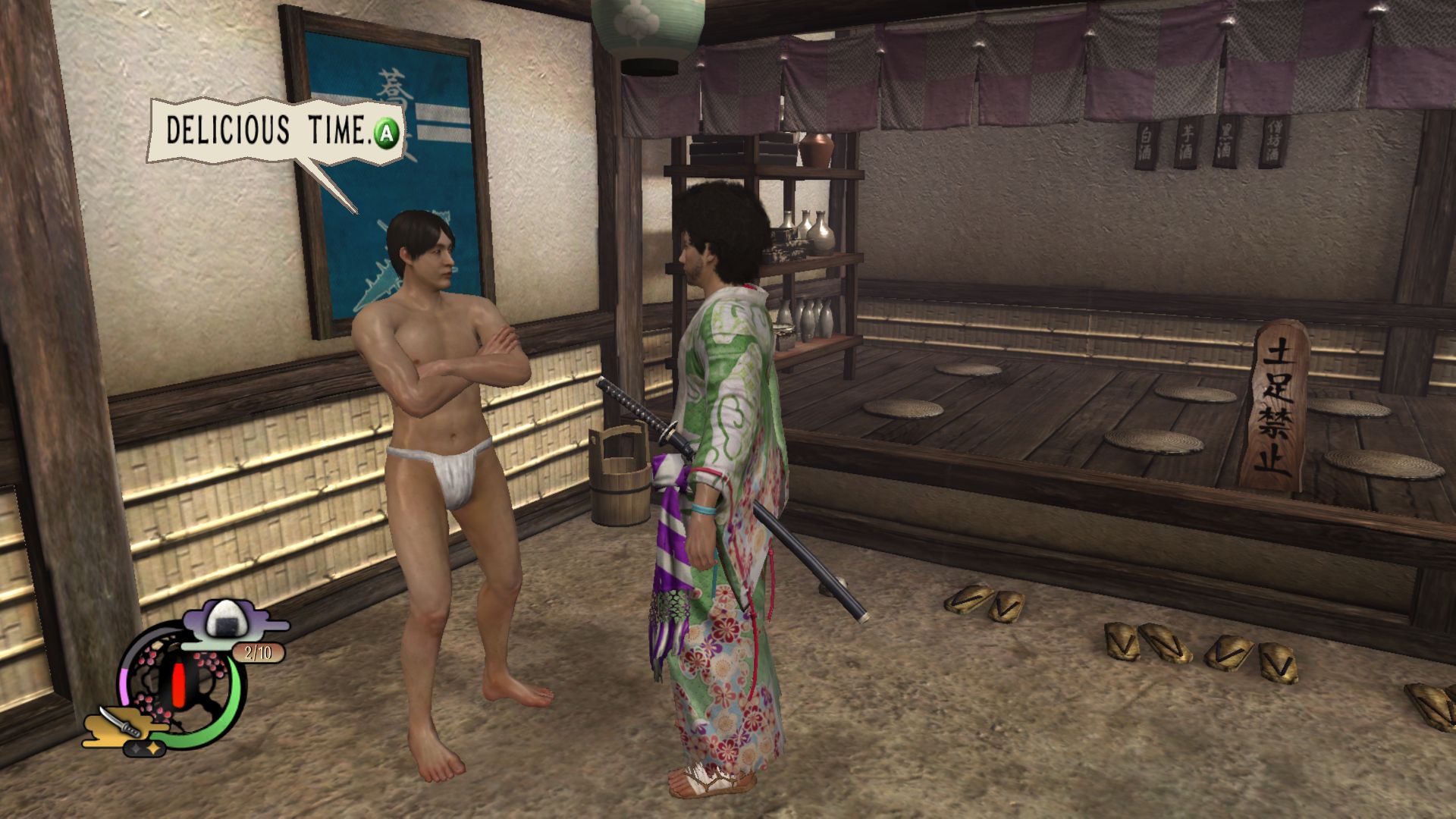
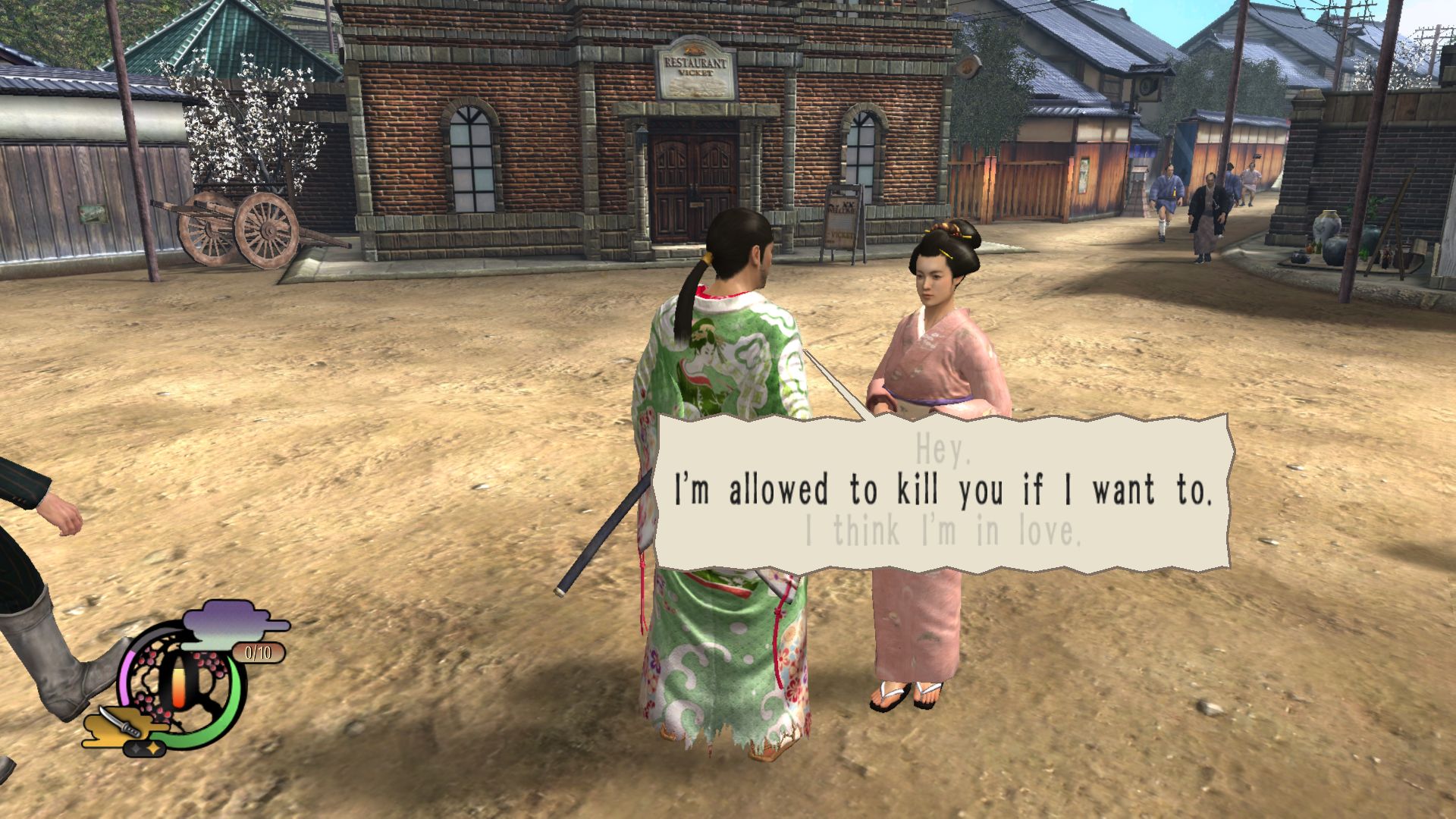
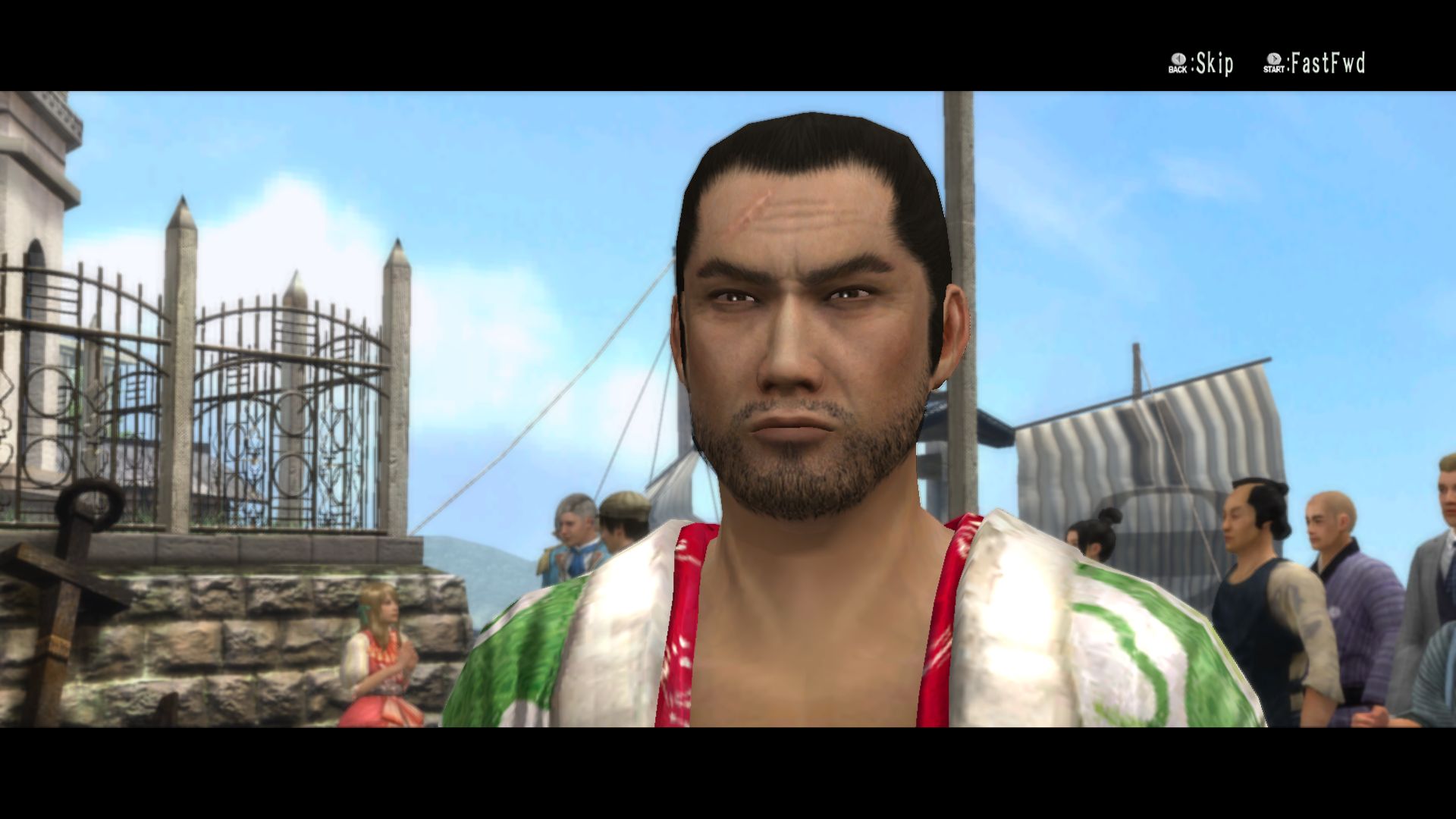
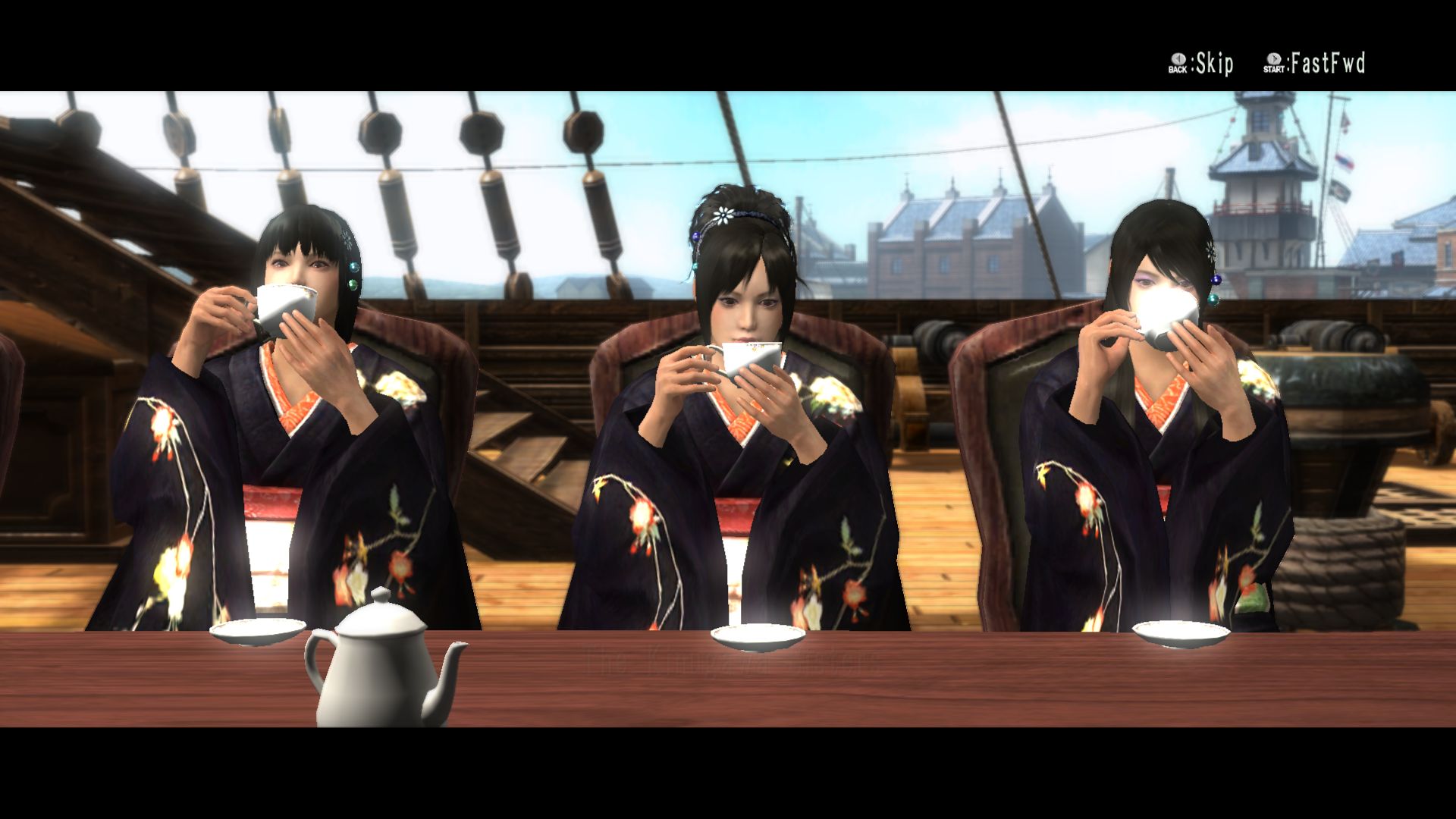
An open-world samurai adventure with an interesting structure and a lot of personality that is, unfortunately, not very good.
If it’s set in space, Andy will probably write about it. He loves sci-fi, adventure games, taking screenshots, Twin Peaks, weird sims, Alien: Isolation, and anything with a good story.
